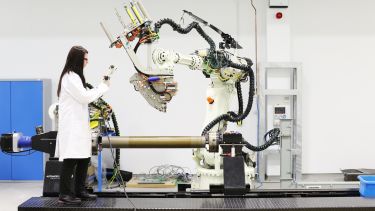Access to equipment and facilities
Many of our world-class facilities are available for use by industry and universities. All of our equipment is maintained and used by experts in their area, who are also available to help you get best value in solving your business problems, ranging from routine testing/analysis to advanced research

Off
Staff in our business gateways will be very happy to discuss your needs and to put you in contact with academics who can help. Please contact us for more information.
Explore state-of-the-art equipment and facilities across the University
